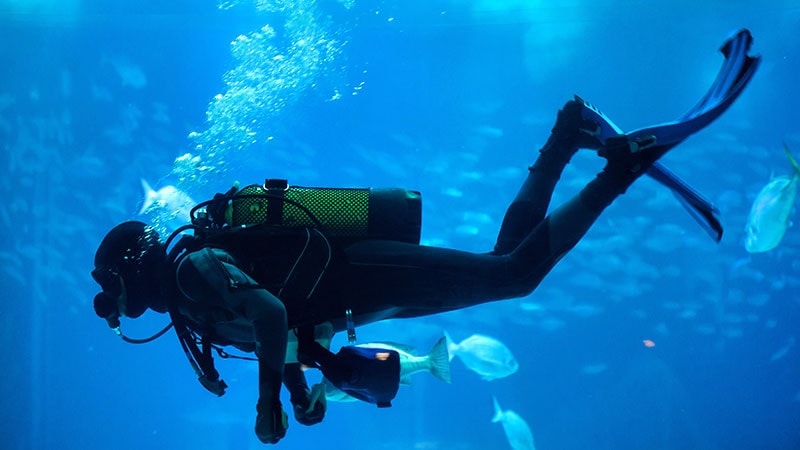TOPLINE:
Among experienced SCUBA divers, patent foramen ovale (PFO) with certain high-risk echocardiographic features increases the risk of decompression illness, also called the bends.
METHODOLOGY:
Decompression illness in SCUBA divers, caused by nitrogen dissolving into the bloodstream under increasing pressure during descent followed by formation of nitrogen gas bubbles in the circulation during ascent, can be fatal or cause only mild symptoms.
The presence and grade of any PFO by echocardiographic criteria were determined in 100 experienced SCUBA divers (mean age, 41 years); 82% were men, and 8% reported that they had previously experienced decompression illness.
High-risk or high-grade PFO was characterized by at least one of certain echo findings, including atrial septal aneurysm, atrial septal hypermobility (size 2 mm or greater), and right-to-left shunt at rest.
The primary endpoint was 3-year cumulative incidence of PFO-related decompression illness, defined as related cutaneous or neurologic events, symptoms requiring hyperbaric chamber therapy or developing within 30 minutes after surfacing, or unexplained death within 2 weeks after a dive.
TAKEAWAY:
The study was suspended because of slow enrollment, the COVID-19 pandemic, and a significant incidence of decompression-illness events in the PFO group, as determined by the data monitoring committee.
A PFO was detected in 68% of the divers. High-risk PFO occurred in 37% overall. During a mean follow-up of 28.7 months, the incidence of decompression illness was 12.8%.
High-risk PFO was associated with a ninefold increased adjusted risk for decompression illness, at an odds ratio of 9.34 (95% CI, 1.95 – 44.88); there were no unexplained or diving-related deaths.
IN PRACTICE:
“This study indicates that divers with high-risk PFO are more susceptible to [decompression illness] than previously reported, suggesting that they should consider either refraining from diving or adhering to a conservative diving protocol,” the report states.
SOURCE:
The study was conducted by Hyun-Jong Lee, MD, PhD, Bucheon Sejong Hospital, Bucheon, South Korea, and colleagues and was published online July 11, 2023, in the Annals of Internal Medicine.
LIMITATIONS:
The sample size was small, and PFO evaluations, clinical follow-up, and DCI diagnoses were carried out at a single center. Participants had completed more than 50 dives a year, and 76% were diving instructors, so the results may not generalize to all recreational divers.
DISCLOSURES:
The study was funded by research grants from Sejong Medical Research Institute, Hanmi Pharmaceutical, and Chong Kun Dang Pharmaceuticals. Author disclosures are available here.
For more news, follow Medscape on Facebook, Twitter, Instagram, and YouTube.
Source: Read Full Article






